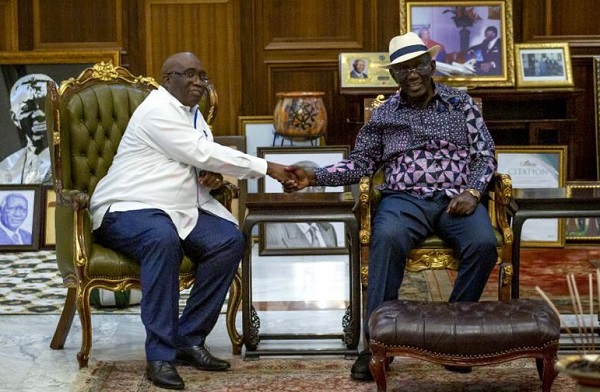Anytime government brings something cheaper, we pay for it – Energy expert doubts Akufo-Addo cheap petrol talk

Executive Director of the Africa Centre for Energy Policy, Mr Benjamin Boakye has expressed doubt about the government’s search for cheaper fuel around the world.
During a discussion on TV3 on 2nd November 2022 on how feasible this arrangement is, Mr Boakye said, “I do not know, we try to give the government the benefit of the doubt to assume that government knows what they are doing but at this rate, I think the government is looking for a miracle. I do not know where that miracle will come from even to contemplate that some have a cheaper fuel somewhere that they can easily discount for them”.
“Ghana is seeking to trade off something for that kind of benefit, I do not foresee any company wanting to give Ghana a discount for nothing. There is something the government is going to trade for that of discount so we have to ask a question on people who are engaged in that expedition to go and get cheaper fuel from anywhere for the Ghanaian people.”
“How the government thinks you can get cheaper fuel anywhere, any day and sit only to wake up in October and go in search of cheaper fuel if there is cheaper of doing this is the responsibility of government, if you track pricing of petroleum for the past one month at least you will see that on the local market price has gone up by 50%, on the International Market it is bout 5 to 6%. It tells you the problem Ghana has is not product pricing but has to do without cedi,” he explained.
“We have to spend the energy looking at how to stabilize the currency that will contribute much positively than looking at the international market price that is not generating the impact”.
According to him, “we are lucky we are not in the realms of $120, 130 dollars that we saw early this year if we had that price on the international market that would have been disastrous for the kind of cedi we have today and I think that is where we have to redirect our efforts and look at how we boost the supply of dollars.
On the issue of speculators, he adds that “we are trying to get speculators who have always been there. They did not just surface, it is a simple demand and supply situation and how to make it sustainable but rather we keep going back and forth trying to blame somebody and not what we have to do. The simple fact of the matter is we do not have enough dollars that should be the attention of the government”.
He added that “we can keep asking where the cheap product is going to come from and where they are getting it and what they are trading that cheaper fuel. I do not see anything for free and also we have to be aware that there is no free lunch anywhere. Also, anytime government has gone into trading petroleum products a lot of debt is being accumulated for the citizens to pay so when we see the details we will interrogate further to know what we stand to lose in the end”.
Observing the terrain of the petroleum business and juxtaposing it with moves Ghana is trying to make to get cheaper fuel Mr Boakye said “I will also like to caution that we need to look at the industry we are operating since some of the Bulk Distribution Companies (BDCs) that buy from the Oil Trading Companies (OTCs ) have credit lines and credit arrangement with the Vittols, BPs and others of this world so if the government is sending a signal that product supply is no longer going to come from those OTCs they are going to be careful about how they deal with BDCs because they cannot give the product to BDCs if government says they will bring the cheaper product onto the market”.
“Already what you are telling them is they may not get their money and that is a major risk to their market so the industry needs to come together to think of a possible solution possibly buying together could give them some savings. Government can do that without any risk but for government to send a delegation into the world to look for cheaper fuel without talking to the suppliers is a major risk for Ghana and the local businesses,” he explained.
He added that “already the companies are taking dollar risk to do the petroleum trading on the market so for me I do not see that arrangement as sustainable, we ought to think through this and engage more”.





